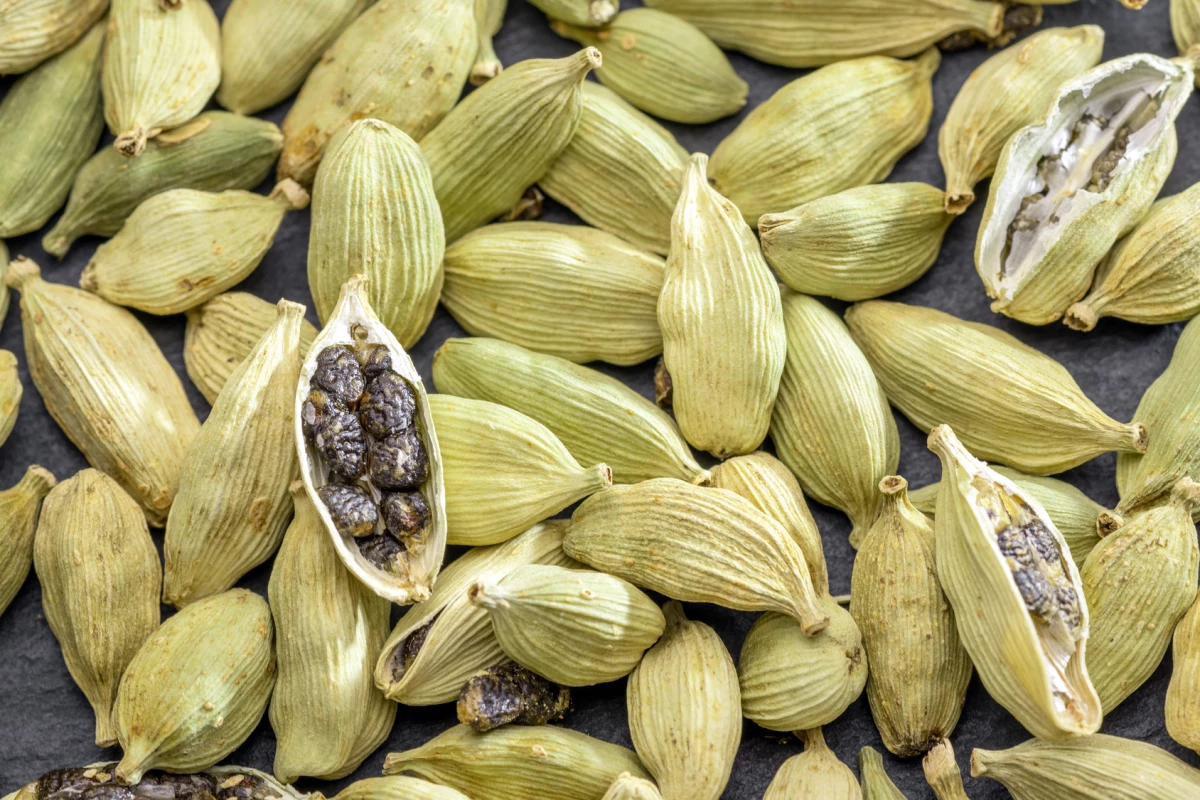Health
Cardamom Extract Shows Potential as Natural Antiviral Treatment

A recent study led by researchers at Shinshu University in Japan has identified cardamom extract as a promising candidate for natural antiviral treatments. The research reveals that compounds found in cardamom seeds can stimulate the body’s immune response to viruses, potentially offering new options for managing infections like colds and flu.
Type I interferons (IFNs) play a crucial role in the body’s defense mechanism against viral attacks. These proteins act as early responders, alerting cells to produce hundreds of interferon-stimulated genes (ISGs) that help create an “antiviral state,” limiting the replication of viruses such as influenza. The study evaluated how an extract from cardamom seeds could enhance the production of these vital proteins.
Takeshi Kawahara, Associate Professor at Shinshu University’s School of Science and Technology and co-corresponding author of the study, stated, “We have been researching food ingredients that can prevent viral infections in our daily life since before the emergence of the novel coronavirus.” He noted that the pandemic has heightened interest in the antiviral properties of food, leading to increased research opportunities.
The research team utilized human lung epithelial cells, which are essential for respiratory defense, to test the effects of a hot-water extract of cardamom seeds (CSWE). By employing gas and liquid chromatography, they confirmed that 1,8-cineole was a major active compound in the extract. Known for its anti-inflammatory, antioxidant, and antimicrobial properties, 1,8-cineole has long been used in traditional medicine.
Upon treating the lung cells with CSWE and 1,8-cineole, the researchers simulated viral infections by exposing the cells to molecules mimicking viral DNA and RNA. The results showed that CSWE significantly increased levels of both IFN-⍺ and IFN-β, key molecules in the antiviral response. Notably, the extract also enhanced the expression of ISGs, thereby bolstering the cells’ ability to block viral replication.
This enhancement occurred regardless of whether the viral mimic was DNA or RNA, indicating that CSWE activates multiple immune pathways. The main compound, 1,8-cineole, also increased IFN and ISG levels in a dose-dependent manner, suggesting it might help maintain a state of readiness in cells even without a viral threat.
The mechanisms behind these effects differ between the extract and 1,8-cineole. CSWE’s impact relied on the STING pathway, a cellular system that detects viral components and initiates the production of IFNs. In contrast, 1,8-cineole enhanced IFN production by inhibiting a gene (TIPARP) that normally dampens this immune response, effectively removing a natural “brake” on the immune system.
Importantly, the extract did not activate pathways that could lead to inflammation or tissue damage, indicating it may enhance antiviral defense without harmful side effects.
While the findings are promising, there are limitations to consider. All experiments were conducted in lab-grown cells, not in live animals or humans, and the concentrations used in the study may far exceed what can be achieved through dietary consumption of cardamom. Additionally, the research was funded by S&B Foods Inc., which provided the cardamom for the study, raising questions about potential biases.
If subsequent research confirms these findings in human subjects, cardamom extract or 1,8-cineole could be developed as a natural immune booster. This may aid in preventing viral infections or serve as a complementary therapy alongside vaccines and antiviral medications.
“Cardamom has historically been widely used as a spice with medicinal properties, but based on these findings, it is expected that it can be utilized as an antiviral material to prevent a wide range of viral infections,” Kawahara added. He expressed hope that the research will inspire a broader focus on the antiviral properties of various food ingredients.
For now, the study serves as an early exploration into cardamom’s potential benefits and is not intended as medical advice. Cardamom tea, while beneficial, should not be viewed as a substitute for vaccines or antiviral medicines.
The findings of this research were published in the journal Foods.
-

 Science2 weeks ago
Science2 weeks agoIROS 2025 to Showcase Cutting-Edge Robotics Innovations in China
-

 Politics2 weeks ago
Politics2 weeks agoJudge Considers Dismissal of Chelsea Housing Case Citing AI Flaws
-

 World2 weeks ago
World2 weeks agoBravo Company Veterans Honored with Bronze Medals After 56 Years
-

 Top Stories2 weeks ago
Top Stories2 weeks agoIndonesia Suspends 27,000 Bank Accounts in Online Gambling Crackdown
-

 Lifestyle2 weeks ago
Lifestyle2 weeks agoStone Island’s Logo Worn by Extremists Sparks Brand Dilemma
-

 Sports2 weeks ago
Sports2 weeks agoMel Kiper Jr. Reveals Top 25 Prospects for 2026 NFL Draft
-

 Health2 weeks ago
Health2 weeks agoTop Hyaluronic Acid Serums for Radiant Skin in 2025
-

 World2 weeks ago
World2 weeks agoHoneywell Predicts Record Demand for Business Jets Over Next Decade
-

 Health2 weeks ago
Health2 weeks agoStartup Liberate Bio Secures $31 Million for Next-Gen Therapies
-

 Politics2 weeks ago
Politics2 weeks agoNew Jersey Voters Urged to Register Ahead of November Election
-

 Lifestyle2 weeks ago
Lifestyle2 weeks agoMary Morgan Jackson Crowned Little Miss National Peanut Festival 2025
-

 Sports2 weeks ago
Sports2 weeks agoYamamoto’s Mastery Leads Dodgers to 5-1 Victory in NLCS Game 2








